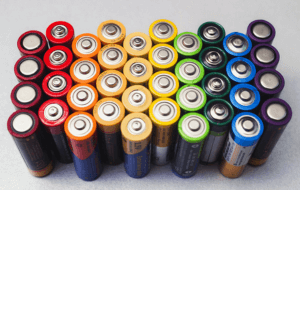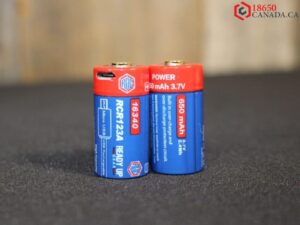Lithium-ion batteries are devices that store and provide electrical energy for various electronic devices and applications. They are widely used in devices and applications such as smartphones, laptops, cameras, drones, electric vehicles, etc. Electric cars are vehicles that run on electricity instead of gasoline or diesel. They have many advantages, such as being more environmentally friendly, energy-efficient, and cost-effective.
However, they also depend on the quality and performance of their batteries. To choose the best battery for your electric car, you need to consider several factors, such as size, shape, weight, capacity, voltage, current, discharge rate, cycle life, safety, cost, availability, etc. These factors influence the performance and efficiency of the battery and the electric car.
In this article, we will explore the role of lithium-ion batteries in the future of renewable energy. One of the main benefits of using lithium-ion batteries in renewable energy systems is that they can store excess solar and wind power and distribute it when needed. This can help to balance the supply and demand of electricity and improve the reliability and stability of the grid.
Renewable energy sources

Renewable energy sources such as solar and wind are intermittent and variable, meaning that they depend on weather conditions and time of day. This can create challenges for grid operators who need to match the electricity generation with the electricity consumption. Lithium-ion batteries can act as a buffer or a backup that can store the surplus electricity when there is more generation than demand and release it when there is more demand than generation.
This can reduce the need for fossil fuel power plants that are used to fill the gaps in renewable energy supply. Another benefit of using lithium-ion batteries in renewable energy systems is that they can help renewable generators integrate with existing grids by smoothing the energy distribution and providing ancillary services such as frequency regulation, voltage control, and peak shaving.
These services are essential for maintaining the quality and security of the electricity supply and preventing blackouts or brownouts. Lithium-ion batteries can respond quickly and precisely to changes in grid conditions and adjust the power output or input accordingly. This can enhance the efficiency and flexibility of the grid and reduce the losses and costs of transmission and distribution.
Another benefit of using lithium-ion batteries in renewable energy systems is that they can enable decentralised and distributed renewable energy systems that can operate independently or in parallel with the grid. This can increase the access and affordability of electricity for remote and rural areas that are not connected or poorly connected to the grid.
Decentralised and distributed renewable energy systems are small-scale and local systems that generate and consume electricity close to where it is needed. They can use lithium-ion batteries to store the electricity generated by solar panels or wind turbines and use it when needed or sell it back to the grid or to other consumers.
This can reduce the dependence on centralised power plants and long-distance transmission lines that are vulnerable to natural disasters or sabotage. However, using lithium-ion batteries in renewable energy systems also poses some challenges and limitations that need to be addressed and overcome.
One of the main challenges of using lithium-ion batteries in renewable energy systems is their high cost. Lithium-ion batteries are expensive to produce and purchase, which makes them a significant part of the initial and operational costs of renewable energy systems. The cost of lithium-ion batteries depends on various factors such as raw materials, manufacturing, transportation, installation, maintenance, etc.
Cost
The cost of lithium-ion batteries has been decreasing over time due to technological improvements and economies of scale, but it is still a barrier for many potential users and buyers of renewable energy systems. Another challenge of using lithium-ion batteries in renewable energy systems is their limited availability.
Lithium-ion batteries rely on the supply and demand of lithium, cobalt, nickel, and other metals that are rare and finite.These metals are mostly mined in a few countries that face environmental, social, and political issues.The availability and price of these metals are subject to fluctuations and uncertainties due to factors such as demand growth, supply constraints, market speculation, trade disputes, etc.
The availability and price of these metals affect the availability and price of lithium-ion batteries, which in turn affect the availability and price of renewable energy systems. Another challenge of using lithium-ion batteries in renewable energy systems is their environmental impact.
Lithium-ion batteries have an environmental impact in terms of their production, disposal, and recycling. They require a lot of energy, water, chemicals, and land resources to extract and process their raw materials. They also contain toxic metals that can contaminate.
Final Thoughts
Lithium-ion batteries are shaping the future of renewable energy, playing a pivotal role in our transition to sustainable alternatives. These advanced energy storage solutions enable efficient utilization and storage of clean power, improving grid stability and supporting the integration of renewable sources.
With ongoing technological advancements and increased deployment, we can expect even greater reliance on lithium-ion batteries in the renewable energy landscape.
Their scalability, efficiency, and versatility make them vital for achieving a sustainable energy future. Embracing the potential of lithium-ion batteries will accelerate the global shift towards a cleaner, greener, and more resilient energy system.

